'Crying in H Mart: A Memoir' by Michelle Zauner
'Each dish I cooked exhumed a memory. Every scent and taste brought me back for a moment to an unravaged home.'—Review #228

Don’t waste time being angry, or acting like a jerk, or holding a grudge, because you could die suddenly, or someone you love could die suddenly, and all chances to fix things, to heal, and to have a meaningful or joyous relationship would be gone forever. Instead, there would be pain, longing, emptiness and regret over what could have been and all the time wasted. This is the guidance I’m taking from Michelle Zauner’s memoir about understanding her identity and reckoning with her mother’s death, ‘Crying in H Mart.’
Here’s the book’s cover:
I didn’t know much about Zauner when I bought this second-hand copy at the grand re-opening of Yu & Me Books in Manhattan’s Chinatown (it closed temporarily and briefly relocated after a fire) outside of two basic facts: Her book is very popular, and she is an indie rock musician known as Japanese Breakfast. Here she is performing on ‘Saturday Night Live’ in 2022:
‘Crying in H Mart’ traces Zauner’s upbringing in Eugene, Ore., as the daughter of a Korean mother and a white American father. We see her grapple with her mixed identity, both in the U.S. and in Korea. We also see glimpses of her contentious and complex relationship with both of her parents, particularly with her mother. There are good times, including trips to Seoul to visit aunts, cousins and other relatives (minus her grandmother’s traumatizing habit of poking her butt for a laugh). There are bad times, like when she discovers her father has been having online assignations, and when her mother is overly critical, oppressive and abusive. One time, an altercation turns physical and something hurtful is said that can never be unsaid. There also are sad times, like when beloved relations are diagnosed with cancer and quickly slip away. And there are devastating times, like when Zauner, who while in her 20s and living in Philadelphia to start her music career, learns her mother has terminal cancer. Understandably, this news, delivered roughly a decade ago, elicits a lot of:
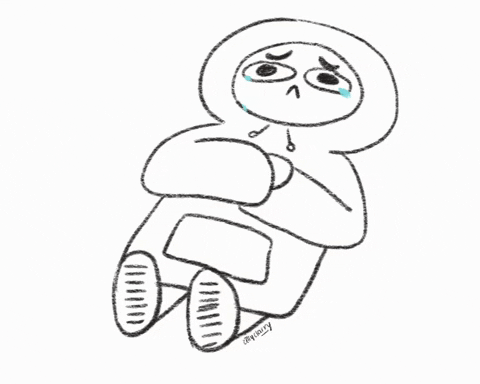
Chemotherapy doesn’t go well, and a trip to Korea to see family one more time proves nearly fatal. Back in Eugene, Zauner and her boyfriend, Peter, quickly arrange their wedding in the backyard of her childhood home with the desperate hope that the forthcoming celebration will prolong her mother’s life. She makes the wedding, but following her death soon after, Zauner’s grief is overwhelming. Reminders of her mother are everywhere, at places like H Mart, the supermarket that specializes in Asian groceries, and in the Korean dishes her mother used to make, like kimchi:
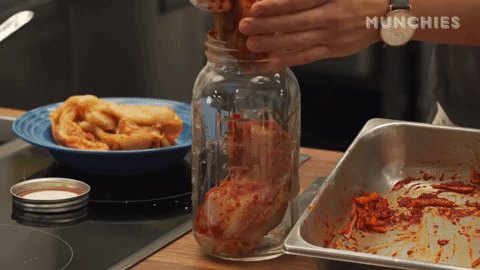
In her grief, Zauner dives into YouTube with the zeal of a convert, hungry to learn how to make Korean cuisine not only to bring her closer to her heritage, but also to keep her mother’s spirit alive. Descriptions of tasty-sounding dishes sprinkle the narrative, like samgyupsal:
On Friday night, I posted on Instagram that some people might get mad at me today with this review. Friends replied to the post in alarm, which I expected considering many people have been moved by this memoir. But it did not work for me. While I was invested in Zauner’s journey, there was a disconnect that I can’t quite put my finger on. Maybe sometimes a memoirist and their reader just don’t connect, like oil and water. Maybe it’s because I wanted to know more about her mother who, while framed as an antagonist and as the focus for intense mourning, was difficult to see as a fully formed person through all the tears. Maybe it’s because I come from a long line of stoics to whom such a display of grief would be unthinkable. Sometimes I worry I don’t possess proper human emotions. I’ve sat in the Sloan Kettering waiting room for hours with my eyes dry not knowing whether Donna would survive cancer surgery. But I can’t watch ‘The Wizard of Oz’ without sobbing. That’s weird, right? Emotions have to come out somehow, and perhaps I’m subconsciously envious of Zauner’s ability to express her grief and to do something constructive with it, rather than bottle it up. ‘Crying in H Mart’ also reminded me that I’ve read a lot of memoirs so far in 2024 (the others are by Julia Fox and Zora Neale Hurston) and that they can be tedious. I think it’s time for me to:
Still, I’m glad I read the book, and I’m pleased that others got so much from it. I think it’s an important exploration of identity and how to process loss. It’s a powerful reminder to us all that we never know how much time we’ll have together.
An opening excerpt:
Ever since my mom died, I cry in H Mart.
H Mart is a supermarket chain that specializes in Asian food. The H stands or han ah reum, a Korean phrase that roughly translates to “one arm full of groceries.” H Mart is where parachute kids flock to find the brand of instant noodles that reminds them of home. It’s where Korean families buy rice cakes to make tteokguk, the beef and rice cake soup that brings in the New Year. It’s the only place where you can find a giant vat of peeled garlic, because it’s the only place that truly understands how much garlic you’ll need for the kind of food your people eat. H Mart is freedom from the single-aisle “ethnic” section in regular grocery stores. They don’t prop Goya beans next to bottles of sriracha here. Instead, you’ll likely find me crying by the banchan refrigerators, remembering the taste of my mom’s soy-sauce eggs and cold radish soup. Or in the freezer section, holding a stack of dumpling skins, thinking of all the hours that Mom and I spent at the kitchen table folding minced pork and chives into the thin dough. Sobbing near the dry goods, asking myself, Am I even Korean anymore if there’s no one left to call and ask which brand of seaweed we used to buy?
Growing up in America with a Caucasian father and a Korean mother, I relied on my mom for access to our Korean heritage. While she never actually taught me how to cook (Korean people tend to disavow measurements and supply only cryptic instructions along the lines of “add sesame oil until it tastes like Mom’s”), she did raise me with a distinctly Korean appetite. This meant a reverence for good food and a predisposition to emotional eating. We were particular about everything: kimchi had to be perfectly sour, samgyupsal perfectly crisped; stews had to be piping hot or they might as well have been inedible. The concept of prepping meals for the week was a ludicrous affront to our lifestyle. We chased our cravings daily. If we wanted the kimchi stew for three weeks straight, we relished it until a new craving emerged. We ate in accordance with the seasons and holidays.
When spring arrived and the weather turned, we’d bring our camp stove outdoors and fry up strips of fresh pork belly on the deck. On my birthday, we ate miyeokguk—a hearty seaweed soup full of nutrients that women are encouraged to eat postpartum and that Koreans traditionally eat on their birthdays to celebrate their mothers.
Michelle Zauner thanked:
The author thanked various friends and members of her family, as well as early readers and editors of her book.
Best book ever?

‘Crying in H Mart: A Memoir’ by Michelle Zauner was published by Alfred A. Knopf in 2021 and by Vintage Books in 2023. 239 pages. $15.81 at Bookshop.org.
New to the TBR:
‘Girly Drinks: A World History of Women and Alcohol’ by Mallory O’Meara (Lofty Pigeon Books)
‘A Month in the Country’ by J. L. Carr (Lofty Pigeon Books)
‘Mother Doll’ by Katya Apekina (Abrams Books)
Books on GIF does not solicit review copies. We feature books we purchase at independent bookstores around New York City and on our travels, or were borrowed electronically from the Brooklyn Public Library.
What’s next:
Before you go:
ICYMI: Review #227
Read this: I’ve gone back and forth about tackling ‘A Court of Thorns and Roses,’ aka ACOTAR, by Sarah J. Maas, but this analysis by
makes me more likely to read it, for sure!Read this, too: ‘The Great American Novels’ by The Atlantic (subscription might be required) is an attempt to identify the best 130-plus works of fiction the United States has produced over the past 100 years. It was great to see that several titles had been featured in Books on GIF. But there’s always something missing, or wrongly included. Let me know in the comments what novel you’d add or subtract.
If you enjoyed this review:
Thanks for reading, and thanks especially to Donna for editing this newsletter!
Until next time,
MPV




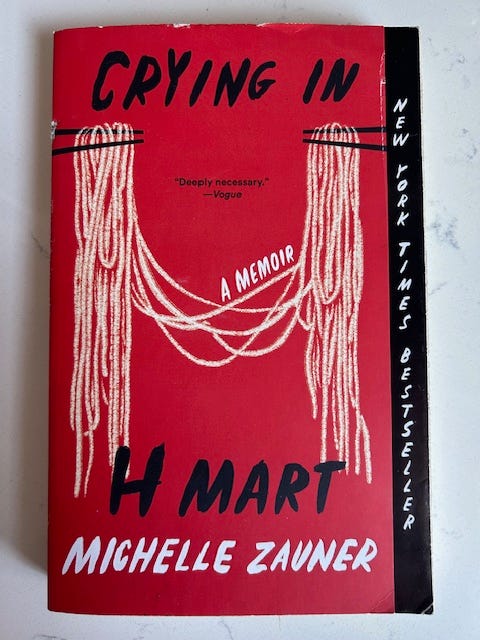


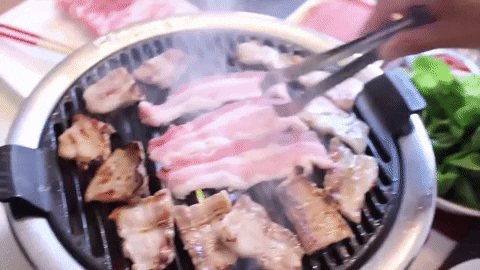

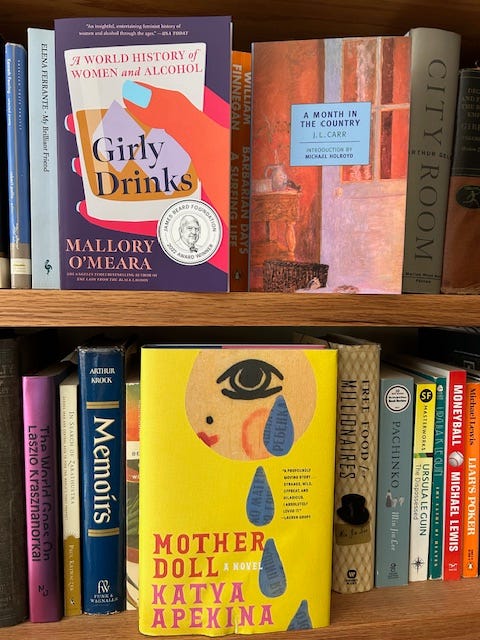
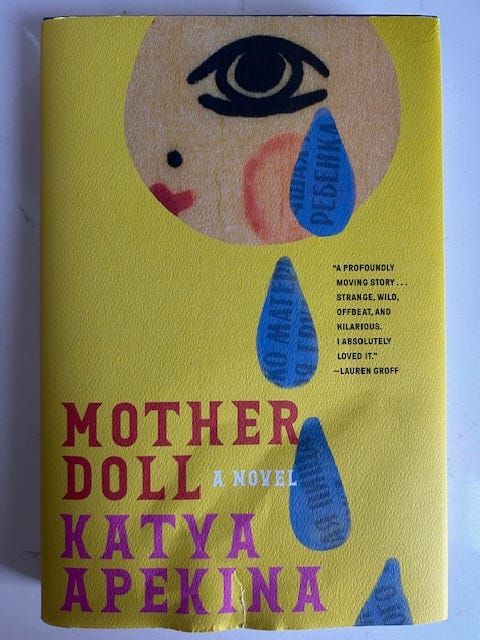



I love that you can acknowledge that while a book may not be YOUR jam, it still can have merit and be meaningful for others ♥️ I personally struggle to write ANYTHING about memoirs I don't like because it is painful for me to judge someone's life story versus a fictional tale. I will often just focus on the style of writing rather than content, but even that can feel fraught!
I tried to read this one and it sounded like a personal essay from the get. I want to be put into the story I don’t want exposition. I also seriously struggle with food descriptions as like a personal issue so maybe I’ll skip this one. I loved your own psychoanalysis lol